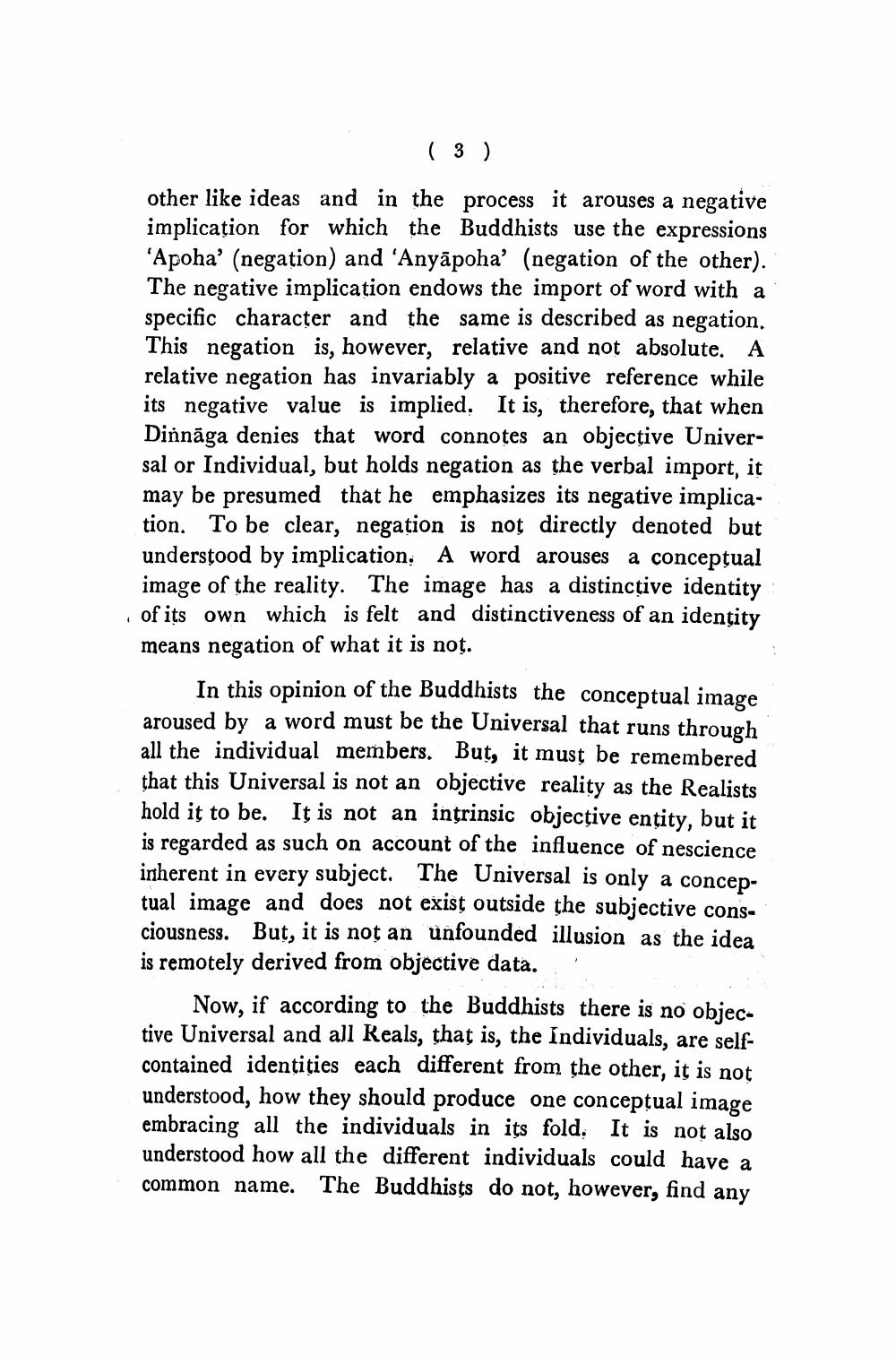________________
( 3 )
other like ideas and in the process it arouses a negative implication for which the Buddhists use the expressions 'Apoha' (negation) and 'Anyāpoha' (negation of the other). The negative implication endows the import of word with a specific character and the same is described as negation. This negation is, however, relative and not absolute. A relative negation has invariably a positive reference while its negative value is implied. It is, therefore, that when Dinnaga denies that word connotes an objective Universal or Individual, but holds negation as the verbal import, it may be presumed that he emphasizes its negative implication. To be clear, negation is not directly denoted but understood by implication. A word arouses a conceptual image of the reality. The image has a distinctive identity of its own which is felt and distinctiveness of an identity means negation of what it is not.
In this opinion of the Buddhists the conceptual image aroused by a word must be the Universal that runs through all the individual members. But, it must be remembered that this Universal is not an objective reality as the Realists hold it to be. It is not an intrinsic objective entity, but it is regarded as such on account of the influence of nescience inherent in every subject. The Universal is only a conceptual image and does not exist outside the subjective consciousness. But, it is not an unfounded illusion as the idea is remotely derived from objective data.
Now, if according to the Buddhists there is no objective Universal and all Reals, that is, the Individuals, are selfcontained identities each different from the other, it is not understood, how they should produce one conceptual image embracing all the individuals in its fold. It is not also understood how all the different individuals could have a The Buddhists do not, however, find any
common name.




